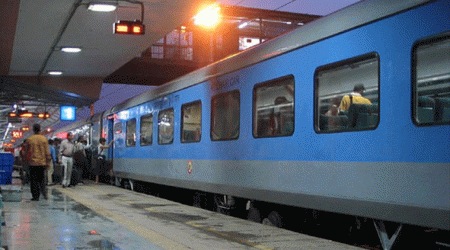 Online delivery services said it was too early to judge a pattern in terms of food order deliveries. Image: Thinkstock
Online delivery services said it was too early to judge a pattern in terms of food order deliveries. Image: Thinkstock
A month since the Goods and Services Tax (GST) was rolled out, restaurants have witnessed a dip in online bookings and delivery orders, according to owners. With 18 per cent GST levied on home delivery orders, consumers complain that the total food bill turns out to be expensive in spite of not being served in the restaurant. Eighteen percent GST is levied on home deliveries from restaurants that are air-conditioned (AC) and also for non-AC outlets that have an AC segment. Restaurant associations claim their total business has been affected adversely when compared with the last month due to the new tax regime.
“The rate of online food deliveries has fallen by 40 per cent as compared to last month due to the GST rollout. Consumers feel the increase has pinched their pockets more. We have had cases where consumers have placed orders but then cancelled them due to the hike. They claim that the price for food which is not even being served to them is exorbitant,” Adarsh Shetty, President, Indian Hotel and Restaurant Association (AHAR), said.
Shetty added that charging 18 per cent for AC restaurants is steep as AC is more a necessity than a luxury. The uniform tax rate hits the middle-class consumer more as they end up paying the same charges that they would have paid in a high-end restaurant.
Medium-sized restaurants believe consumers are cutting down on total items of food ordered to save excess tax. “There has been a change in the way people order food. They are wary of the larger tax they would have to pay for more items ordered. The dip in business is huge,” Samir Shetty, owner of Sandip restaurant in Kandivali, said.
When The Indian Express contacted popular online food outlets such as Faasos and Zomato, they said while there had been a growth in the business over the past month, it is too early to judge a pattern in terms of food order deliveries.
“The GST was rolled out only 30 days ago, and given this is the transition period, there will be some disruption — we should give this a quarter before we can start identifying themes and patterns. At our end we are actively working with our restaurant partners to help them transition and expect the initial chinks to settle in a few months,” an official statement from Zomato read.
Consumers claim they have cut down on their eating out plans. “I have informed my family to cut down ordering food or even eating out to once a month. Daily requirements such as tea or coffee too cost much more at a well-off restaurant due to the tax. We aim to save up instead,” said Paawan Mishra, a consumer.
“We aim to spread awareness about reducing the base fare of any food item in the restaurant so that the additional GST would not hike the overall cost. Through social media sites, we are informing restaurants to keep their food item bills low so that they can reap revenues,” said Dhananjay Nene, who is the national secretary of the Consumer Protection Service Council.







